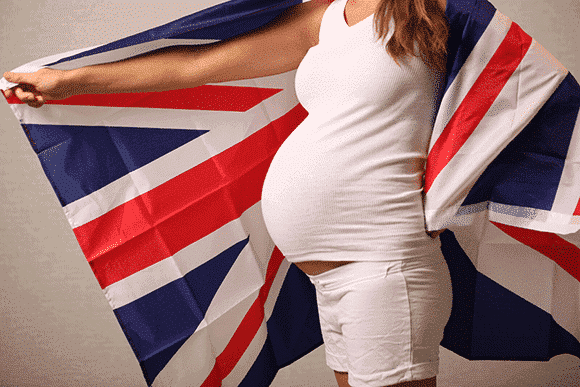
25 Jun 2019 Commission Takes First Steps Toward Ending UK Surrogacy Ban
Great news out of the UK! The UK Law Commission—the body that reviews outdated laws and recommends revisions to the UK government—has made provisional recommendations for reforming the United Kingdom’s surrogacy and parentage/citizenship regulations to better protect the rights of families created via assisted reproductive technology, or ART.
Currently, surrogacy in the United Kingdom exists in a legal grey zone. As colleague Natalie Gamble explains in her appeal for signatories to her Change.org petition urging a review of existing laws:
The UK's surrogacy laws were written in the 1980s. All those involved in modern UK surrogacy recognize that the law is woefully out of date and impractical. Under the current laws:
-
- The surrogate and her spouse are the legal parents of the baby born.
- Surrogacy agreements are unenforceable.
- Parents who have children through surrogacy overseas are the legal parents in the country where their child is born but not in the UK.
- Parenthood is transferred to the intended parents through a court process, which takes up to a year after the birth, and has problematic and outdated criteria.
- The law appears to restrict payments to surrogates to 'reasonable expenses,' but, in reality, the courts routinely authorize compensation, and the rules are both confusing and unenforceable.
- In the UK it is illegal to advertise, and for surrogacy agencies to make a profit.
The legal obstacles imposed on intended parents in the UK have had several unintended consequences. One is a shortage of surrogates. As a result of the requirement that surrogacy agencies must be non-profit, there are only three in the country; all three have had to turn away new intended parents due to the shortage of surrogates, Gamble wrote.
That shortage, as well as other legal obstacles, has motivated large numbers of UK intended parents to pursue surrogacy abroad. Many go to Western countries such as the United States, where surrogacy is legal and tightly regulated to protect all parties, while those on tighter budgets often wind up in countries where costs are lower. However, the process in these lower cost destinations frequently is rife with legal, quality of care and ethical concerns.
Those intended parents with the fortitude and nerves to brave surrogacy in the UK often enter informal arrangements without benefit of legal counsel or an enforceable surrogacy agreement.
As demand for access to surrogacy and other forms of ART has grown, the nation’s High Court justices have begun calling for changes in the laws. As we reported, in May 2015 the UK High Court ruled that a then-existing law prohibiting a single, unmarried intended father via surrogacy in the U.S. from obtaining a parentage order was in breach of the UK’s human rights laws. The law was changed January 3, 2019, to include single intended parents among those qualified to obtain parentage orders.
The Law Commission’s most recent report calls for a number of changes to existing law that would go a long way toward creating a “pathway” for legal surrogacy in the UK as well as better ensure the rights of individuals who undertake surrogacy abroad and their families. Among the Commission’s recommendations:
- Safeguards, including a written agreement, counseling, and requiring independent counsel for all parties, that would serve as criteria to allow intended parents to be listed on the birth certificate
- A process for designating countries where rights of surrogates are protected and from which children born via surrogacy would be automatically recognized as British citizens and their UK intended parents as legal parents. I am particularly proud of work in this area by the American Bar Association Family Law Section in its recommendation to the Hague Conference on Private International Law Concerning Children, cited in the Law Commission report.
- Keeping in place the “existing system of immigration, nationality and post-birth parental orders” for children born via surrogacy in countries do not have adequate safeguards and protections in place
Much work remains in the UK to advance the reproductive rights of individuals suffering from infertility, LGBT people and single intended parents. The Law Commission’s final recommendations on changes to UK surrogacy and parentage laws are not due until 2021, after which Parliament will decide whether or not to accept the recommendations and enact reform. We are encouraged by the commission’s initial progress and commend all of our colleagues, in the UK and elsewhere, who continue working for reproductive freedom and equal protections for all families.

















